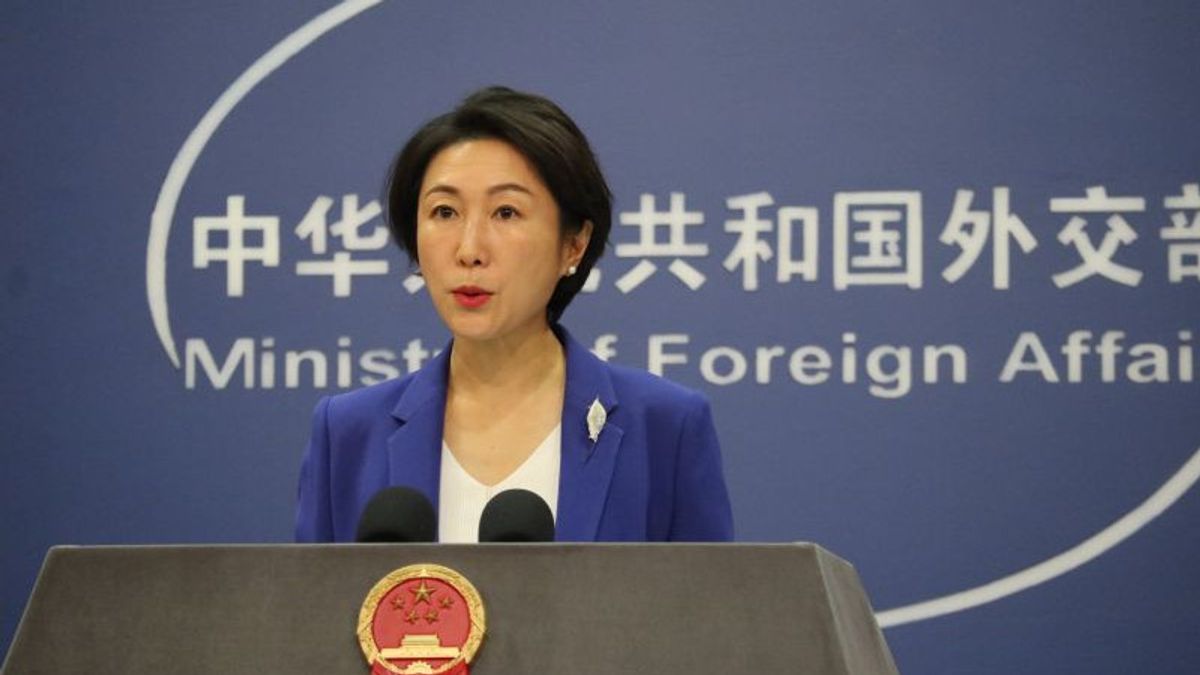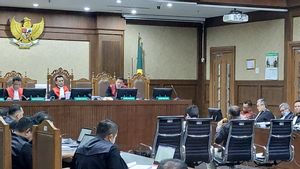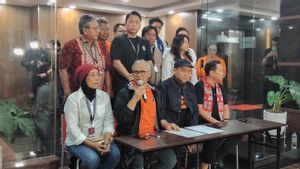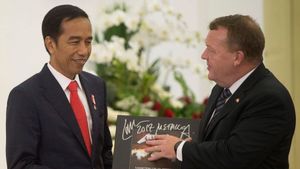JAKARTA - Chinese Foreign Ministry Spokesperson Mao Ning accused the United States' actions on coral reefs, which China calls "Ren'ai Jiao", of supporting provocations carried out by the Philippines.
"Ignoring the facts, they carried out baseless attacks on China's lawful and legitimate law enforcement activities to protect our rights in Ren'ai Jiao. This is a malicious attempt to support violations and provocations carried out by the Philippines," Mao said as reported by ANTARA, Monday, October 23.
The coral island, which the Philippines calls "Ayungin Shoals", is part of the Spratly Islands which are disputed by the two countries, as well as several other Southeast Asian countries.
On Sunday (22/10), China and the Philippines accused each other of a ship collision in the area when a Chinese ship blocked a Philippine ship that was going to supply defense supplies.
The US State Department then said that the Chinese coast guard violated international law by deliberately interfering with the freedom of the high seas for Philippine ships.
"We regret and reject it. First, Ren'ai Jiao has always been Chinese territory. It is an integral part of China's Nansha Qundao (Spartly Islands) geographically, economically, politically and historically," added Mao.
Mao claimed that China's view had been established as a general international view in accordance with the provisions of UNCLOS law of the sea.
"China has indisputable sovereignty over Nansha Qundao and the surrounding waters, including the Ren'ai Jiao," said Mao, saying China's claims were consistent with international law including the UN Charter.
Mao said there was no point in the US continuing to dispute the region.
"This cannot shake China's strong determination and will to defend its territorial sovereignty and maritime rights and interests," Mao stressed.
On the other hand, the Philippines' actions in Ren'ai Jiao, according to Mao, were increasingly supported by the US.
"For some time, China and the Philippines have handled the situation in Ren'ai Jiao through relatively good communication and reached understandings. However, since the beginning of this year, the US has openly supported the Philippines' actions in violation of China's sovereignty and incited and supported the Philippines' efforts to "repairing and strengthening its warships which were deliberately 'grounded' at Ren'ai Jiao," explained Mao.
The Philippines has stationed the warship BRP Sierra Madre as a "floating base" for the Philippine coast guard on the reef since 1999.
"The US even sent military aircraft and ships to aid and support the Philippines, and repeatedly attempted to threaten China by citing the US-Philippines Mutual Defense Treaty," Mao said.
Mao emphasized that the situation in Ren'ai Jiao was a bilateral issue between China and the Philippines. "The US has no place in it," Mao said.
She said the Philippines' actions violated international law and the provisions of the Declaration on the Conduct of Parties in the South China Sea (DOC), as well as violating the Philippines' own promises.
"China has the right to take necessary enforcement measures against Philippine violations in accordance with domestic and international law," Mao said.
SEE ALSO:
Mao assessed that the US incited and supported the Philippines in carrying out violations and provocations in Ren'ai Jiao.
She asked the Philippines to stop its provocations and said that the Philippines' actions had ignored China's good intentions, violated its own promises, continued to send ships to intrude into Ren'ai Jiao waters and spread disinformation regarding this issue.
"China once again urges the Philippines to take China's concerns seriously, honor its commitments, stop carrying out provocations at sea, stop its dangerous actions, and stop attacking and vilifying China," Mao said.
Manila and Beijing continue to be at odds in the South China Sea because both countries claim sovereignty in this highly strategic waterway.
The English, Chinese, Japanese, Arabic, and French versions are automatically generated by the AI. So there may still be inaccuracies in translating, please always see Indonesian as our main language. (system supported by DigitalSiber.id)



















